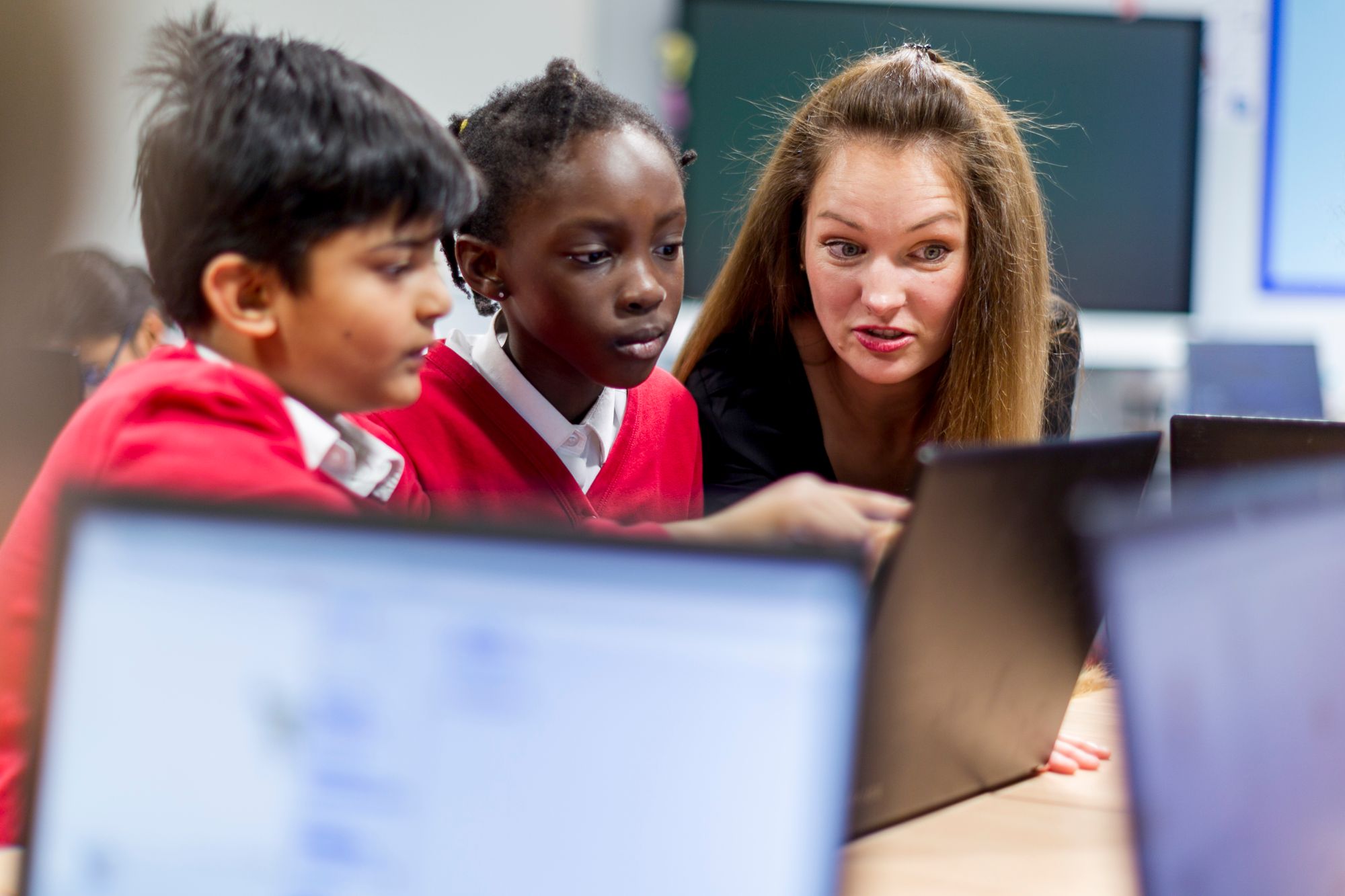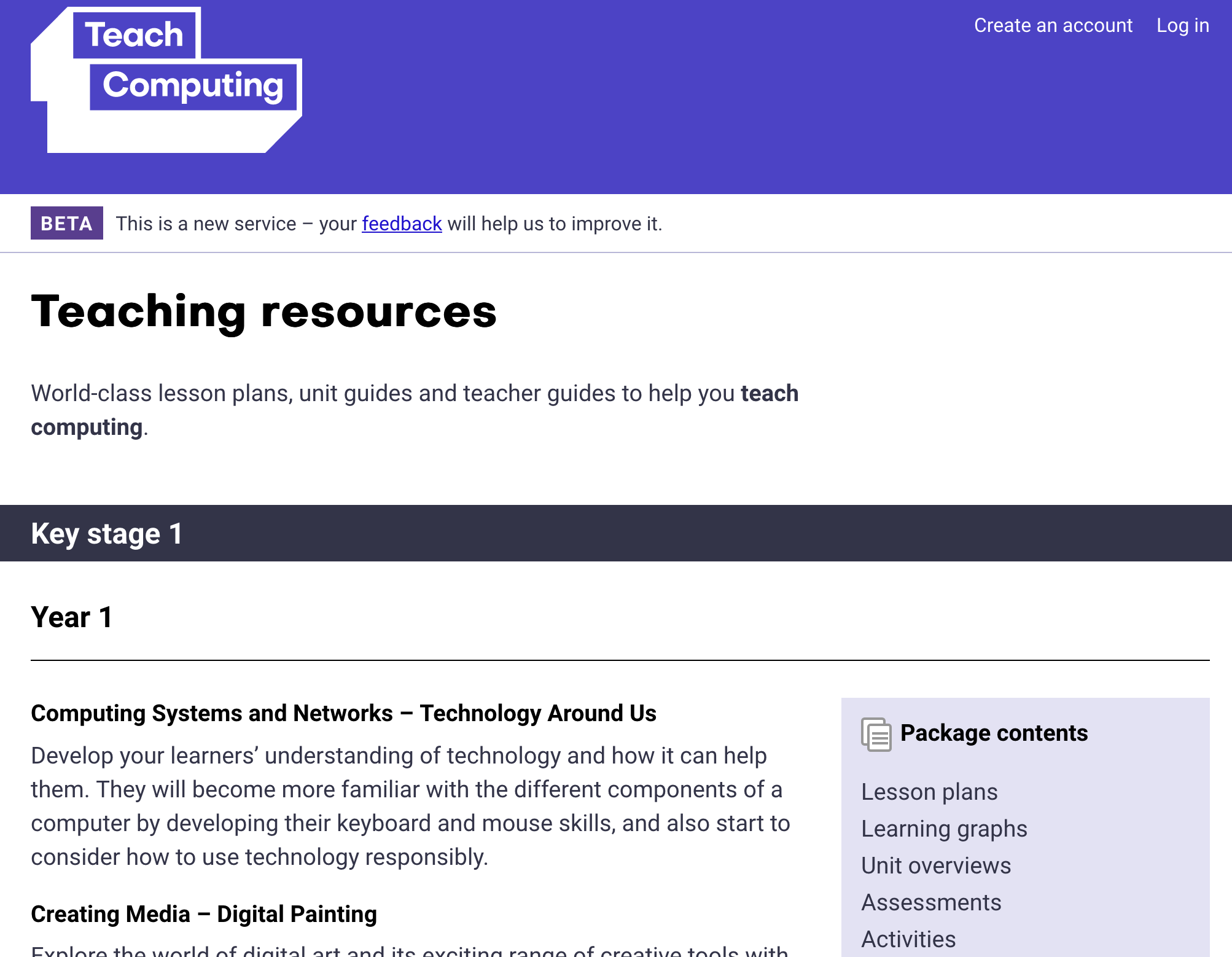New Resource Repository for teaching computing launches today
30 September 2019

We are working to create a comprehensive Resource Repository for teaching computing: a collection of over 500 hours of teaching materials to help you with the delivery of the entire computing curriculum from Key Stages 1 to 4 in England. The purpose of the Resource Repository is to reduce your workload whilst also supporting you to increase your subject knowledge and have a greater understanding of effective pedagogy.
The first units of work in the Resource Repository are launching today in beta, and you can be one of the first to try them.

All Resource Repository content is free, open, and editable (under the Open Government License, or OGL), so you can tailor it to your students and specific school setting. We’ve also made sure the content is suitable for all students regardless of their academic performance, background, and additional needs.
You can now find the first nine units, developed by experienced primary and secondary computing educators, by visiting teachcomputing.org/resources. The five primary units cover Computing Systems and Networks, and Creating Media. For secondary, there are four Key Stage 3 units on e-Safety, Using Media, Data Representation, and Spreadsheets.
What the Resource Repository will include
Over the next nine months, this collection will grow to approximately 36 units for primary computing, and 30 for secondary computing including GCSE Computer Science.
Once completed next year, the Resource Repository will encompass the following:
- A teacher manual for each Key Stage, which will include support materials such as aspirational pedagogy and best practice, along with guidance on inclusion and assessment
- At least six units of work per year group, including an overview of a connected series of lessons, detailing context, background, and student progression; each overview will also link to professional development opportunities that the National Centre offers to assist you in developing your subject knowledge
For each unit of work:
- Approximately six lesson plans, which contain all the information required for you to deliver a particular lesson, including any prior reading, plus details of equipment and resources required to deliver a particular activity to students of varied performance
- Homework and assessment opportunities (for each unit of work from Key Stage 2 onwards) to extend or assess students’ learning
- A learning graph: a visual representation of a particular topic, including the relationships and dependencies between skills and concepts
- Each lesson includes a number of activities that form a discrete “chunk” of learning; the activities may be online or offline, take varied forms, and may include suggested adaptations to suit a variety of students and their needs
Tried and tested in the classroom
One of the reasons that it takes time to develop all of this content to teach computing is that we ask schools to pilot it. During the last term of the 2018/19 academic year, our first units of work were piloted in primary and secondary schools in England. During this pilot phase, we asked both specialist and non-specialist teachers of Computing to deliver Resource Repository content related to Computing Systems and Networks to learners in Years 1 to 3 in primary, and Data Representation to Year 8 learners. Some teachers provided feedback after the lessons took place, whilst others allowed our content writers to sit in on the lessons to observe first hand how the learners responded.
We’ve learned a great deal from these pilots, as well as from feedback from academics and specialist teachers. For example, as a result of the feedback, we are ensuring a focus on providing clear, age-appropriate definitions of key vocabulary for learners; outlining further approaches to differentiation; and including additional assessment opportunities.
Overall, we have been delighted with the results of the pilots — particularly the comments from non-specialist teachers, who found that the lesson plans enabled them to deliver the sessions effectively. One Year 3 teacher wrote:
"The lesson plan was very clear and easy to follow, with added explanations (which I feel I needed) to help with subject knowledge."
We were also very pleased to hear that teachers felt our activities were accessible to their learners, which enabled them to meet the lesson objectives:
"All the children in my class were able to access the resources for this lesson. [...]The final activity helped show if they understood what they had learnt/met their objective."
How can I access the Resource Repository?
Log into your teachcomputing.org account, visit teachcomputing.org/resources, and select an academic year group within a Key Stage. You can browse any of the content, share it, and make your own copy to use or adapt, and print.
In the future, we will add mechanisms for you to provide a rating and detailed feedback to help make the materials as useful as possible.
What about other resources?
The long-term aim of our Repository is to collect, review, and publish a comprehensive computing education learning pathway that supports students all the way from Year 1 through secondary, to obtaining a qualification in Year 11. Many fantastic resources already exist for teaching computing in England, such as Barefoot Computing, and outstanding lessons and activities contributed by educators to CAS resources. In the next few years, the Resource Repository will grow to include links to external, high-quality resources.
We think that, by providing easy access to good content, whatever its source, we will enable you and teachers like you to use your time more effectively and focus on enhancing your subject knowledge and pedagogical practice.
Get involved
- Simply log into your teachcomputing.org account and visit teachcomputing.org/resources to try out our new resources today.
- Sign up to be one of our pilot schools to get exclusive early access to upcoming new resources before they are published in the Repository: register your interest at ncce.io/resourcespilot, and we’ll be in touch.
Written by Carrie Anne Philbin
Director of Educator Support at the Raspberry Pi Foundation, CAS Board Member, Chair of CAS include, author, and YouTuber